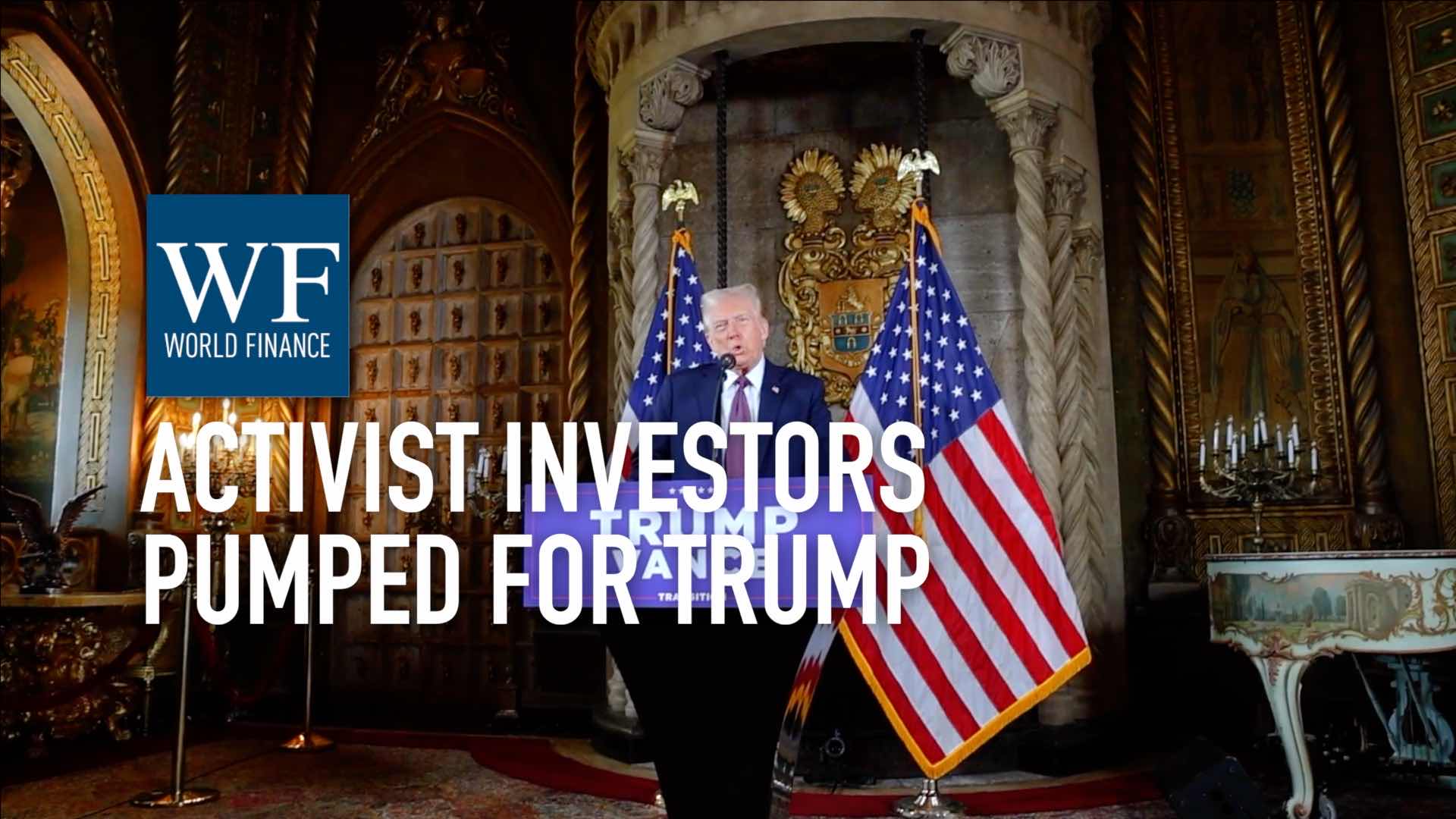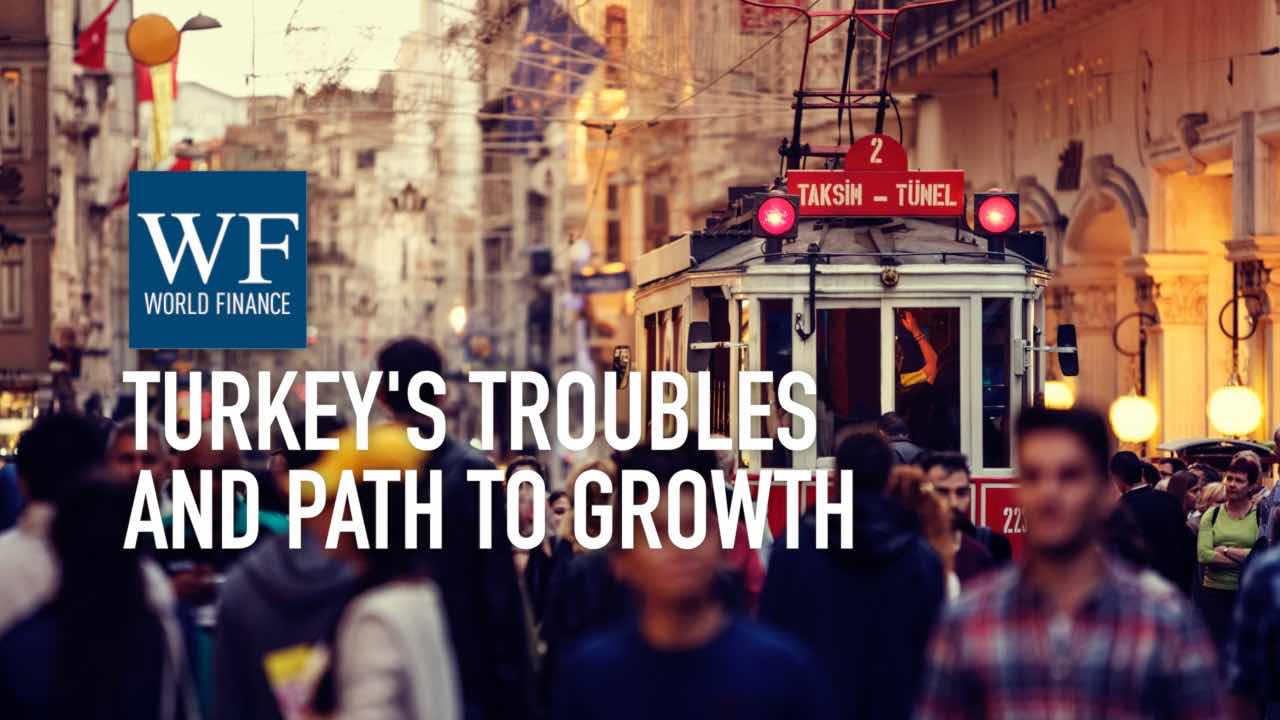Yılmaz Yıldız: What Trump’s wall means for emerging economies
The CEO of Zurich Turkey looks at the global economic effects of the US President's infrastructure ambitions
Related:
Transcript
It’s the bridge between Europe and Asia, enjoying one of the highest average growth rates in the OECD over the last few years. Despite domestic and international political issues, Turkey’s economic performance is still promising. Yılmaz Yıldız, CEO of Zurich Turkey, discusses the big global developments that may disrupt Turkey’s growth – and the growth of other emerging economies. Politics in the US and EU, US interest rates, and rising commodity prices are the key issues to look out for. Click through to watch the rest of our conversation with Yılmaz Yıldız, where we dive deeper into Turkey’s insurance industry, and find out how Zurich Turkey is tackling cyber risks for consumers and businesses alike.
World Finance: It’s the bridge between Europe and Asia, enjoying one of the highest average growth rates in the OECD over the last few years. Despite domestic and international political issues, Turkey’s economic performance is still promising. Joining me to explore Turkey further: Yılmaz Yıldız.
Let’s talk about some of those big, global developments that you’re seeing.
Yılmaz Yıldız: Many things! 2016 has been a very difficult year, and 2017 seems that it will be a very, very difficult year.
Especially important and relevant for the emerging markets are three major trends. That’s one: politics. And interestingly, politics in the developed world, more than the emerging world.
Secondly: Fed and what will happen in the US. And third: oil and commodity prices.
Politics will determine what will happen on the economic front. What Trump will do, especially vis a vis Russia, China, Iran, NATO, all of the global institutions; will have major impact. And on the other side, which is very, very important for emerging markets, is what Trump will do on the economics. Now what we hear is fiscal stimulus: basically heavy investment in infrastructure to generate employment. That will create roughly $4tr of new investments, which will mean the budget deficit will increase, Fed will need to take action, interest rates in the US will go up.
What that means is higher dollars, the currencies in emerging markets will depreciate. And it’s a major negative development for all of the emerging markets, including Turkey.
World Finance: What’s the outlook for Turkey specifically?
Yılmaz Yıldız: Turkey has a lot of advantages. The difficulty about Turkey is being in a rough neighbourhood. So what happens in Syria, what happens with the refugee problems, will have an impact. And that will kind of determine the context.
On the economic front, Turkey has a lot of strengths. It’s a very resilient economy, first of all. Demographics: very healthy. Very strong, very diversified economy. And if you look at the past decade, income per head quadrupled.
The biggest strength I think is the fiscal strength. Debt to GDP is around 30, 35 percent; and budget deficit is around one percent. One of the lowest within Europe and emerging markets. That gives the government room to manoeuvre for fiscal stimulus, and to increase investments if and when necessary.
On the negative side, the main point is the current account deficit. Turkey has a sizeable current account deficit, being a net oil and commodity importer. And when the interest rates in the US go up, and dollar strengthens; plus the increase in oil and natural gas prices, creates problems for current account deficit.
And EU developments – what happens with Brexit, and what happens with all those elections – will have a major impact. Because Turkey’s biggest trading partner is the EU. And related to that, the foreign direct investment will be very much shaped by the global environment.
So, Turkey overall has a very resilient, very strong position. The current account deficit and foreign direct investment to finance the growth is something that will need to be watched very carefully, very closely.

 Prepare now for aggressive shareholder activism under Trump 2.0, says Kai Liekefett
Prepare now for aggressive shareholder activism under Trump 2.0, says Kai Liekefett Yılmaz Yıldız: Turkey’s troubles are ‘just a blip on the long-term chart’
Yılmaz Yıldız: Turkey’s troubles are ‘just a blip on the long-term chart’
